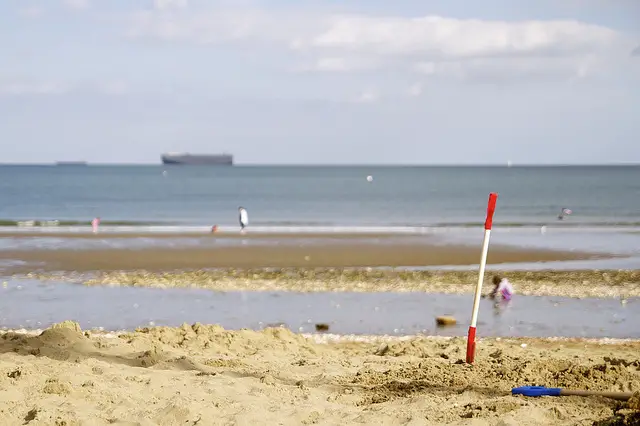This in from Southern Water, in their own words. Ed
The Bathing Water Enhancement Programme has been driven by customer desire to further improve the quality of the region’s bathing waters and by Southern Water’s commitment to protect the environment and to support the communities it serves.
David Tyler, Southern Water’s Environment Strategy Manager, explains:
“During our customer engagement for our 2015-20 Business Plan, customers made clear that they wanted us to go above and beyond our statutory duties, which require us to help bathing waters meet basic standards, and do more to improve bathing water quality across the region.
“Crucially, they also told us that they were willing to pay extra through their water bills to fund the enhancements which we had outlined. This allowed us to take this feedback to our economic regulator Ofwat – which gave us permission to earmark up to £31.5 million over the five years to bring seven bathing waters up to the ‘excellent’ criterion. This is the measure required to apply for Blue Flag status, provided the standard is maintained over a four year rolling period.
“This investment is an unusual step for a water company and the regulator to take, as companies are not normally funded to exceed their statutory duties. The fact we secured permission is testament to the passion both we and our customers share to do more to protect the environment.
“More than 92 per cent of customers surveyed supported our plans and we have also committed to work with other agencies, local communities and landowners to bring all coastal waters at bathing beaches in the region up to the standard required to achieve Blue Flag status by 2040.”
MCS endorsement
Southern Water’s ambitious programme has been endorsed by the Marine Conservation Society (MCS).
Rachel Wyatt, MCS Water Quality Programme Manager, said:
“We welcome Southern Water’s plans to do more to improve bathing waters in its region and increase the amount of beaches with ‘excellent’ quality. We are keen to see Southern Water achieve its objectives with this project and will keep closely involved to see real results in reducing bathing water pollution from a variety of sources.”
There are 83 accessible designated bathing waters in the Southern Water region. Of those, the company has identified 21 to be investigated as part of the first stage of the project.
Shortlisted
Those shortlisted are:
In Kent: Sheerness, Minster Leas, Leysdown, Tankerton, Herne Bay Central, Herne Bay, Margate Fulsam Rock, Deal Castle, Folkestone, St Mary’s Bay and Littlestone.
In Sussex: Brighton Kemptown, Worthing, Middleton-on-sea, Felpham, Bognor Regis (Aldwick) and Selsey.
In Hampshire: Stokes Bay and Hillhead.
On the Isle of Wight: Cowes and Shanklin.
Investigations at each of these 21 bathing waters will take place over the coming year with seven chosen to be progressed with improvements to bring them up to ‘excellent’ status by the end of March 2020.
Working to understand causes of pollution
David said:
“In order to tackle the numerous sources of pollution, we will take the lead on working with local authorities, landowners and others to find and fix the problems.
“We have invested millions of pounds over recent years to upgrade our wastewater network and improve coastal water quality. However, bathing water is also affected by many other sources of pollution which are outside of water companies’ control.
“These can include contaminated rainwater running off roads and agricultural land into the sea and watercourses, wastewater from privately-owned treatment works, boats and animals on the beach such as dogs and seabirds.
“We will now work to understand the causes of pollution at each of the 21 bathing waters shortlisted and identify which of them, and the communities they serve, would benefit the most from intervention.”
The whole process, from planning through to selection and the practical solutions, is being overseen by Southern Water’s Customer Advisory Panel – an independent group which provides challenge, advice and scrutiny of the company’s delivery of its Business Plan.
Image: tenspeedphotography under CC BY 2.0





